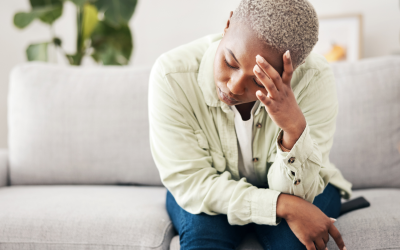
School’s Out! What Do I Do Now?
This post may contain affiliate links, which means we may receive a commission, at no extra cost to you, if you make a purchase through a link. Please see our full disclosure https://www.rachelbutlercounseling.com/disclosure-privacy-policy-terms-of-use/ for further information.
The “school’s out” season is among us! Whether you’ve just finished a semester of college, high school, or graduate school, the end of a semester can be a time of great relief and accomplishment. On the other end, it can also be a time of stress and exhaustion. Taking time to allow yourself to rest is essential for your mental and physical health.
To many, resting can be lounging or catching up on all the sleep one lost during the semester. However, it is important to understand that resting is also about re-energizing your body as well. When you prioritize an overall renewal while resting your body, this encourages:
– Reduced Stress:
In the presence of grades, deadlines, and finals, stress becomes a common experience among students. This is often coupled with anxiety, depression, and burnout. Adequate rest will significantly lower these levels.
– Boosts In Productivity:
Contrary to the belief, pushing yourself to work harder and longer than your personal limits can make your work less efficient. Balancing breaks in between will combat these risks.
– Improved Sleep Quality:
It is no surprise how important sleep is to our health. However, the trend of doing “all-nighters” has resulted in affecting our sleep habits that remain even when the semester ends. Maintaining scheduled resting times is how we ensure consistent sleep in the long run.
– Space for Processing:
“Mental Dumping” is a common practice among students. It consists of clearing your headspace to make room for more information. While this can be relieving, it is also important to reflect on the lessons, experiences, and even criticism of each semester. This grants the space to process your emotions effectively while mentally preparing for your future plans.
– Better Physical Health:
Whether you are on campus, a commuter, or even an online student, there are many physical demands that come with each semester. Allowing your body to recover through rest is key to lowering the chances of physical symptoms such as muscle tension, fatigue, and headaches.
– Enhanced Creativity:
Breaking from the demands of school helps our minds explore and wander with ease. In return, these skills can be used not only in our academic work but in other areas of our lives as well.
How Do I Recover from the Semester?
As previously mentioned, methods of resting can have varying options. Remember to consider what personally brings you comfort, relaxation, and most importantly, peace of mind. This will help you to have a personalized plan to achieve a successful recovery from the semester!
Some ideas include:
– Take Time to Reflect
Before diving into relaxation mode, take some time to reflect on the past semester. Ask yourself: What went well? What didn’t go so well? What did you learn? What can you do better next time? This process can help you examine your experiences and feelings you may have had during the semester and help you plan for the future. Using a journal or notebook to write down your thoughts and feelings will give you a chance to follow up with this reflection in the future. In addition, this will give you the opportunity to set intentions for the next semester.
– Disconnect From Technology
Technology can be a major source of stress and anxiety, particularly for students. After a semester of online classes, exams, and assignments, it’s important to disconnect from technology and give your brain a break. Turn off your phone, laptop, and any other electronics and engage in activities that don’t require screens, such as reading a book, going for a walk, or even doing a puzzle.
– Get some Intentional Rest
Yes, one of the most important things you can do after the end of a semester is to get some restful sleep. However, rest and sleeping are not necessarily the same thing. Another form of resting is through prioritizing relaxation. These are usually low-stress activities that are personalized to one’s enjoyment. Some examples include getting a massage, binge-watching your favorite show, and splurging on your favorite comfort food.
– Engage in Mindfulness Techniques
The end of the semester can be relieving for your mind being that your thoughts aren’t racing as much. When recovering, there are many mindfulness techniques you can use to help calm your mind and reduce stress. Some popular options include yoga, meditation, deep breathing, and progressive muscle relaxation. These techniques can help you feel more centered and grounded and can be particularly useful when you’re feeling anxious or overwhelmed.
– Spend Time Outdoors
Spending time outdoors is a great way to rest and recharge after a semester. Whether you take a hike, go for a bike ride, or just sit outside and read a book, being in nature can help reduce stress and improve your mood. If you’re feeling adventurous, try camping or backpacking for a few days. Getting away from the academic world and immersing yourself in nature can be a powerful way to rejuvenate your mind and body.
– Connect with Friends and Family
After a busy semester, it’s easy to neglect social connections in order to study and complete assignments. However, social connection is an important part of our well-being, and spending time with loved ones can be a great way to rest and recharge. Schedule some time to catch up with friends and family, whether it’s over dinner, a game night, or a phone call. Connecting with others can help us feel more supported and connected.
– Indulge in Self-Care
Self-care is essential for our mental and physical health, and after a busy semester, it’s important to take some time to indulge in self-care activities. This could mean taking a long bath, having a spa day, or simply spending some time alone doing something you enjoy. Whatever your self-care routine looks like, make sure to prioritize it during your rest period.
– Learn Something New
Learning something new can be a great way to rest and recharge, mainly if it’s something you’ve been interested in but haven’t had time to pursue during the semester. This could be anything from learning a new language, taking a cooking class, or restarting a hobby. This is a great way to rekindle your creativity after the demands of the semester.
It is crucial to reward your body with the rest that it deserves and needs. Though this process isn’t linear, the commitment to your well-being is worth more than any assignment that you complete. Remember, recovery from the previous semester is also preparation for future one.
To discuss how therapy could help you during this season of your life, please contact me or schedule your free 15 minute consultation.
Want to read more? Here are a few of my related blog posts you may be interested in checking out!




0 Comments